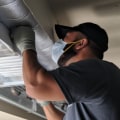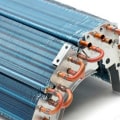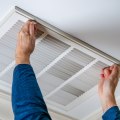When it comes to replacing your air conditioning unit, the type of ductwork you choose is an important factor. Flexible ducts are the best option for tight spaces where metal air ducts don't fit, and they are considered cheaper and easier to install. The advantage of using flexible ducts is their ability to bend and be used in tight areas. They are made with a steel spring coil covered in thick plastic.
However, it is important to avoid punctures, kinks or sags during installation, as they could impair the performance of the air conditioning system. Sheet metal ducts are also an option for replacing your air conditioning unit. These ducts are rigid and made from galvanized steel or aluminum. They are more durable than flexible ducts and can last for many years. Sheet metal ducts are resistant to mildew due to their non-porous material, allowing for better air quality for longer.
However, they can be more difficult to install than flexible ducts. Choosing the right ductwork for your home depends on the materials, the overall design, your heat retention or noise reduction needs, and your budget. It's also important to choose a contractor who has experience installing different types of ducts. This will ensure that your home's air conditioning system operates efficiently and safely for years to come. Professional installation can also help reduce energy costs by ensuring that the air duct system is properly sealed and insulated. If you're licensed for this job, replacing air ducts yourself is a great way to save money, as long as you have the right tools and knowledge. To ensure optimal performance of your HVAC unit, you should inspect your ducts regularly for air leaks and other problems.
If you're replacing an old air conditioning system with a more efficient one, you should replace it with a new, high-efficiency unit. If you decide to replace the air ducts yourself, it's critical that you thoroughly research the process and that you have a good understanding of what you're doing before you start. The function of the ducts is to direct the air leaving the air conditioning unit and distributing it to the different spaces of the house. Flexible ducts have a lower chance of air leaking out of the air conditioning system than rigid ducts, although they are more likely to be punctured. If your home has a history of water damage or other moisture problems, you should test for the presence of mold before installing new ductwork.Once taxes, permits, and other expenses are factored in, replacement or repair costs will encompass more than just labor costs.
It's important to consider all factors when deciding which type of ductwork is best for your home.


